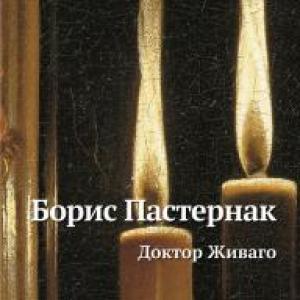Who is eligible for benefits when entering a university.
In this article we will talk about the direct purpose of using quotas. In essence, its function is to provide free admission to the university, breaking the lower entrance threshold of entrance examinations (USE and DVI).
Within the budget places are allocated:
Special admission quota
* disabled children,
* disabled people of I and II groups,
* disabled since childhood,
* people with disabilities due to military trauma or illness received during military service who, according to the conclusion of the federal institution of medical and social expertise, are not contraindicated in training in the relevant educational organizations,
* orphans and children without parental care,
* war veterans;
Quota of targeted admission to training.
A special quota is set by the selection committee in the amount of not less than 10% of the volume of the control numbers for admission due to budget allocations for each educational program. Applicants with special rights must provide supporting documents. Again, the possibility of admission is guaranteed to those who have higher scores. The restrictions on minimum scores established for applicants apply to the categories of persons listed above.
Targeted income:
Let us dwell on the conditions of admission in the target direction.
The first step is to find a company that is ready to finance your training to meet the needs of qualified personnel. The main options:
* on the university’s website there are lists of organizations from which this educational institution accepts applications;
* Ask family members working in large enterprises to find out in the human resources department about the possibility of obtaining a training quota;
* Contact the company where you would like to work directly.
It is necessary to agree on getting the target direction as early as possible, best of all in September-October, since the number of places provided by the company is limited, and some universities accept applications from employers only until April 1. The company provides a targeted direction for only one university of your choice; when applying for documents to other educational institutions, your privilege is not valid.
The next stage is accompanied by many bureaucratic delays. You must provide the documents required by the company, such as:
*copy of the passport
* extract from the house book
* medical certificates and more.
You also need to pass an interview, psychological and intellectual tests, pass physical standards. It already depends on the policy of the organization with which you intend to cooperate, some do not have such requirements.
Competition for places within the target quota is held separately from the main set of state employees, but the requirements for applicants are the same. Like other applicants, it is necessary to pass the exam and the internal exam (if the university conducts DVI). With a lack of points in some cases, the quota may burn out. On average, points for categories of persons with a quota are 20-30 lower than the main set. That is, if the university determines 371 points that are acceptable for entering the budget, the limit for quotas will be 340. In most cases, if you get points that are sufficient to get a budget place, you can refuse the quota by removing the obligation to work out in the future.
Target students, along with other students studying at the expense of budgetary funds, can receive a state academic scholarship. However, there are different cases, so you need to carefully read the terms of the contract.
Benefits of Targeted Admission
* Guaranteed employment of university graduates
* The possibility of combining university studies and work in the specialty
* Additional measures of social support at the expense of the employer when studying at a university
* Passing practices, internships, diploma design at the future place of work
disadvantages
* Workout for three years (however, it may not be, or your obligations may vary depending on the company). Working conditions after graduation should be spelled out in the contract that you conclude as an applicant
* It will not work to drop out, as one of the possible consequences is to pay compensation for the money spent on your training in three times. It is unlikely that you will want to part with such a large amount.
* I also want to draw your attention to the fact that the results of the exam are often unpredictable. Many years of work can go down the drain due to a couple of unresolved tasks. Such an outcome will be a huge blow, and admission to the desired university will remain a dream.
If you are happy to get guaranteed employment and professional experience, then the target area is a great opportunity not to miss your chance. But of course, carefully read the contract so that after four years the conditions of your work do not come as a surprise to you.
According to statistics, more than 50% of university students study on a paid basis. It is becoming increasingly difficult to enter the budget every year. In this regard, the legislator provides benefits for admission to a university or technical school (college) at the expense of the federal and regional budgets.
Types of benefits on admission
Admission to the institute without exams
An applicant has the right not to pass exams upon admission if he:
- I participated in the All-Russian Olympiad for schoolchildren and won first or prize place at the last stage (participation in the Olympiad is completely free), about which a special diploma is issued;
- He participated in the international school subjects olympiad;
- Passed the exam in five;
- He is the champion or prize winner in the Olympic or Paralympic Games, the champion of the world or Europe.
The chosen specialization must correspond to the profile of the olympiad won. Prizes in sports are taken into account only upon admission to sports faculties.
Parents have the right to register a student in 2019 to participate in the following Olympiads, based on his success in specific subjects:
The winner’s diploma privilege is valid for 4 years if the school olympiad and 1 year if it is all-Russian. The privilege is granted only to one university for one chosen specialty. Only the first level olympiads give this advantage.Do you need on this issue? and our lawyers will contact you shortly.
Admission to the school by quota
 What is a special quota?
What is a special quota?
This is the annually changing number of budget places that the institution itself establishes. Such places must be established for each faculty separately.
A child who has received such a quota must pass the entrance exams and score the minimum number of points.
Who is eligible for the special quota in 2019:
- Children with disabilities, children with disabilities and people with disabilities 1-2 groups;
- Persons injured or disabled during the war or military service (if there are no contraindications for study);
- Orphans and children left without parental care;
- War Veterans;
- Citizens under the age of 20 brought up by a mother or father with a disabled group 1-2 (family income should be lower than the minimum wage).
The quota may be targeted. This means that tuition is paid by the state body or municipal institution, on which the student will continue to work. The reason for this is a special agreement between the applicant and the sponsor company.
A standard contract is concluded only at the request of the applicant and obliges him to work at the enterprise 3 years after receiving a specialty. Attention! Since mid-2018, admission by quota has become possible with the simultaneous submission of documents to 5 universities at once in 3 different directions. Previously, this could be done only within the framework of the 1st university and the 1st direction, respectively.
Who else has enrollment benefits
These individuals have the right to take free preparatory courses before entering, as well as free full-time training in the profession. To do this, you need to score the same number of points with students who apply on a common basis.
In addition to orphans, children with disabilities and low-income citizens, these include:
- Persons exposed to radiation during the Chernobyl disaster.
- Applicants whose parents were military and died during the service or died from an illness, injuries sustained in the service;
- Children whose parents were Heroes of the USSR, RF, Knights of the Order of Glory;
- Applicants whose parents worked in the internal affairs bodies, criminal executive bodies, the Investigative Committee, customs, the fire service, departments that control drug trafficking and died in the service;
- Children of prosecutors who died in the service or after its passage;
- Citizens who have tested nuclear weapons and radioactive substances, who have liquidated accidents related to radiation, and also participated in the burial of radioactive substances.
Also, military contractors who have served 3 years or currently serve are free to study. Officers do not have this privilege.
Free preparation of these persons is carried out once on the basis of a school graduation certificate. The payment of scholarships is a mandatory attribute when undergoing budgetary education.
Confirmation of preferential rights
Parents of the student or the applicant himself, having collected the necessary list of documents, has the right:
- Take them personally to a branch of a university or college;
- Send paper by mail;
- Send documents to the email address of the university.
General documents for admission: applicant's passport, school certificate, exam results and a medical certificate.
Documents confirming benefits for admission to the university:
- Disability certificate of the applicant or his parent;
- Individual rehabilitation program for the disabled person;
- Certificate from the place of service of parents;
- Certificate of champion status, golden insignia and identification paper;
- School certificate with honors, gold or silver medal;
- Diploma of victory in the Olympics;
- Certificate of family income;
- Inquiries from the military registration and enlistment office;
- Court decision on depriving parents of their rights, their incapacity;
- A court verdict in which parents are deprived of their liberty;
- Certificate of Chernobyl.
You can find out about the number of preferential places, entrance tests, the number of required points and other information on admission on the university website or in the selection committee. If the legal department of the university refused to apply on preferential terms, you can write a statement to the Department of Education or the court.
To become a student of the budget department can not only young people who graduated from secondary school with honors, but also applicants who fall into one of the preferential categories, which we will talk about today.
All yesterday’s schoolchildren are well aware that to enter a university for free Today in Russia is not so easy, because the number of budget places at each faculty is limited. In addition, modern universities are striving to occupy the highest possible position in the ranking of higher education institutions, which is why budget places are given first of all to applicants who are referred to as "the best of the best." Therefore, candidates for free training can mainly be those who can boast not only excellent grades in the certificate, but also high exam results.
However, it is important to understand that not only young people who graduated from secondary school with honors, but also applicants who fall into one of the preferential categories, which we will talk about today, can become students of the budget department.
What categories of applicants are preferential?
According to the Order of the Ministry of Education and Science of Russia No. 1147 dated 10/14/2015, the right to preferential admission to russian universities have several categories of citizens at once, which we conditionally divided into three groups.
The first group of beneficiaries are the winners of the Olympics
First of all, privileges for enrollment in a higher educational institution are awarded to winners of national olympiads held by Russian comprehensive schools (including from among students living in Crimea on a permanent basis). In addition, preferential conditions apply to all team members who won prizes in international competitions in the humanitarian and technical fields.
Champions of the Olympic, Deaflympic and Paralympic Games, winners of European Championships and championships, as well as world champions also have an advantage at the time of admission. True, it is necessary to clarify that these persons can use the preferential conditions for admission only if they enter specialties in the field of sports and physical education.
According to the current legislation, all the above categories of applicants have an indisputable right to preferential admission to the university for a bachelor’s and specialist’s degree, without passing entrance exams.
This preferential category also includes schoolchildren who won first prize at the Olympiads, which are held directly by representatives of universities. This is done in order to identify gifted students who in the future will be able to form the main backbone of each student group, which, in turn, has a positive effect on the overall reputation of a university among other educational institutions.
However, it is worth noting that for each of the above categories of beneficiaries, preferential rights to enrollment are valid only for a certain period. For example, winners and winners of the All-Russian School Olympiad are entitled to preferential admission to the university for 4 years from the date of the official approval of the competition results, but winners of school olympiads organized with the support of the Russian Council of School Olympiads can only use the privilege for 1 year .
Admission to the University without mandatory entrance exams is an advantage of the so-called "first degree". Moreover, according to the current legislation, an applicant is exempted from exams only if he enters the specialty in which he won a prize in the designated olympiads. The first-order privilege is provided to the applicant only once, therefore this fact is quite often it is a good motivation for high school students. The "second order" includes benefits provided to applicants who passed the exam perfectly. Students who receive the highest marks at the USE will also receive privileges for admission to the university without passing entrance exams.
The second group of beneficiaries - orphans, people with disabilities and contract soldiers
The next category is beneficiaries deprived of parental care, as well as orphans under 23 years of age, children with disabilities, children with disabilities, people with disabilities of groups 1 and 2 (these children receive permission to free tuition at the university based on medical indicators and findings of relevant experts). However, it should be noted that the number of beneficiaries coming from this category should not exceed 10% of the total number of applicants.
In addition, preferential conditions are provided to applicants under the age of 20 years, in whose care one of the parents, who is a disabled person of the 1st group, is in care. A prerequisite for this is the fact that the family is classified as low-income.
Also right to preferential admission to the university have contracted military personnel, positions which can be replaced. This category includes both demobilized military personnel who have undergone a 3-year contract service and military personnel in the service. Only the officers are not in this privileged category.
It is important to remember that all of the above listed citizens who have special rights to enroll in universities must pass the entrance tests. Only after that their non-competitive rights to receive free higher education will be confirmed.
Other beneficiaries
- invalids injured in military service,
- children whose parents died or took part in the liquidation of the Chernobyl accident,
- military personnel in reserve
- children of military personnel whose military service exceeds 20 years (preferential conditions apply when enrolling in military educational organizations),
- children whose parents died participating in counter-terrorism operations.
We emphasize that this group of beneficiaries acquires the pre-emptive right to enter a university at a time when the admissions committee of an educational organization is forced to make a choice between applicants who have scored the same number of points in entrance exams.
In addition, all applicants in this category who have received preferential entry rightshave the opportunity to take free preparatory courses.
Important! The applicant can use the privilege for admission only for one educational program and only in one higher educational institution.
What confirms the right to preferential conditions for entering a university?
All designated groups of citizens who are counting on preferential admission to the university must, without fail, provide the members of the university selection committee with a full package of documents proving their personal data (passport), academic achievements in a comprehensive school (school certificate and exam results), health status ( medical certificate) and the right to apply preferential terms. The latter include a certificate from the place of work of the parents, a diploma of the winner of the school Olympiad or a medical certificate on the assignment of disability to the parent.
In modern Russia, more than half of students undergo tuition on a fee basis. Today, getting to a university or college to a budget department is extremely difficult, especially provided that the institution is popular among the population. Benefits for admission to a university in 2019 are provided to a certain category of students and are an essential type of support.
This article is devoted to what preferences are given to students upon admission at the federal and regional levels and what the procedure for registering such benefits is provided for.
The rules for admission and enrollment of a student in an educational application are determined directly by the university or college. Legislatively this issue is not fixed, but at the local level it turns out in two different directions:
- Granting preferences to medalists and prize winners of olympiads.
- Realization of the right to education for children from families in need of special state support.
Additionally, there are special quotas that are allocated for students when enrolling:
- admission to an educational institution without examination and on a non-competitive basis;
- granting the right to benefits for certain groups of applicants;
- preferential admission to the course in case of equality of points with other applicants.
Additional criteria for beneficiaries are defined by the Ministry of Education and Science of the Russian Federation in the corresponding federal act.
What are the conditions for admission to an institute without an examination?
Legislatively defined criteria that determine the conditions for admission of a school graduate to a university without an examination. Such a benefit is granted to the following persons:
- If a child took part in the All-Russian Olympiad and won first or any prize in the last stage of the competition. As a result, specialists are given a special diploma.
- Applicant took part in competitions in general school subjects at the international level.
- The applicant passed the exam perfectly or is a medalist.
- The child is officially the champion or winner of the Olympic or Paralympic Games, World Cup or Europe.

It is important that the specialization in which the student enters corresponds to the profile of the Olympiad won. In turn, prizes in sports are relevant only in the case of winning a prize and upon admission to sports faculties. If a child has any success at school in specific subjects, then parents can enroll him in special Olympiads.
With successful participation in the competition, the winner receives a diploma, which is the basis for receiving benefits for 4 years with participation in the school Olympiad and for at least a year, provided that it is national. A preference applies to admission to only one educational institution for a particular specialty. Only level 1 competitions give the child a similar right.
What to do according to the quota?
Each educational institution annually assigns a certain number of preferential places for students to enter free of charge. For each faculty, the number of places is set individually. In this case, the child will need to pass an entrance examination and score a minimum number of points. A quota is granted to the following group of persons:
- children with health restrictions in the form of a disability group of 1-2 groups and for disabled children;
- people with injuries during the fighting or during service, if there is no prohibition on the educational process;
- orphans and minors without parental care;
- veterans of military operations;
- persons who have not reached the age mark of 20 years, who are being brought up by parents with 1-2 groups of disability. Moreover, family income should not be lower than the minimum wage.
The quota is considered the target type of social assistance in which the child will be educated by the state agency or the company where the child will be employed in the future.
How to get the right to preferential crediting?
To take advantage of the benefits, the child or his parents will need to prepare a package of mandatory documentation, and then transfer them to a branch of the educational institution where the former student will go.

Documents may be sent by mail or to the email address of the university. The list of such documents must necessarily include:
- General papers required for admission (passport, school certificate, exam results and medical certificate).
- Documents confirming the right of applicants to receive benefits (certificate with honors or a medal, a certificate from the place of service of parents, a certificate of disability, diplomas about the prize in the Olympics and other types of papers approved by applicable law).
The number of vacant preferential places can be found in detail on the website of each educational institution or when visiting a branch of a university or college.
Conclusion
Children entering the next educational level after school can take advantage of the privilege that guarantees admission without an examination. This right is established only for certain groups of persons, therefore, in order to receive a preference, it is necessary to confirm it in documentary order.







